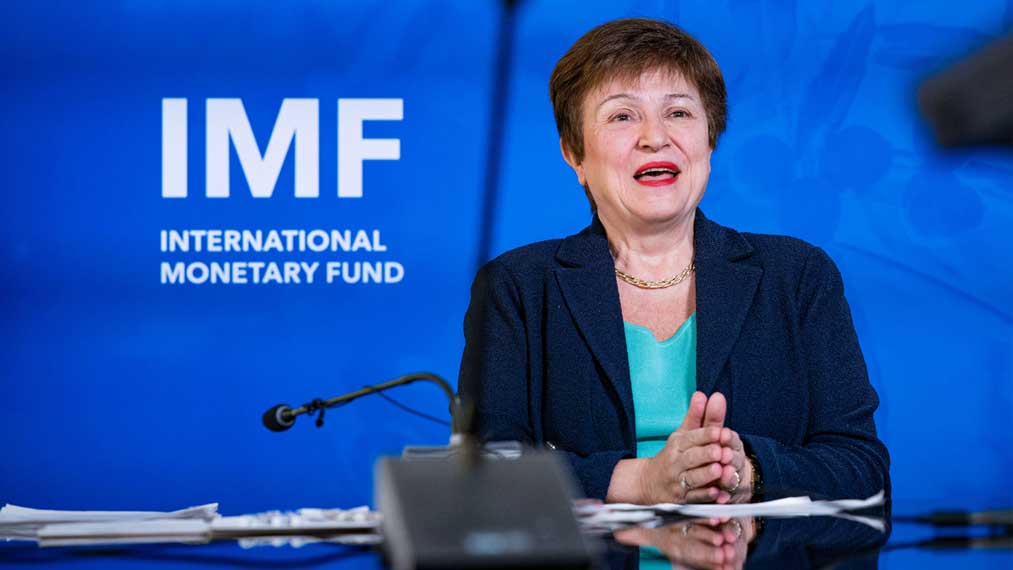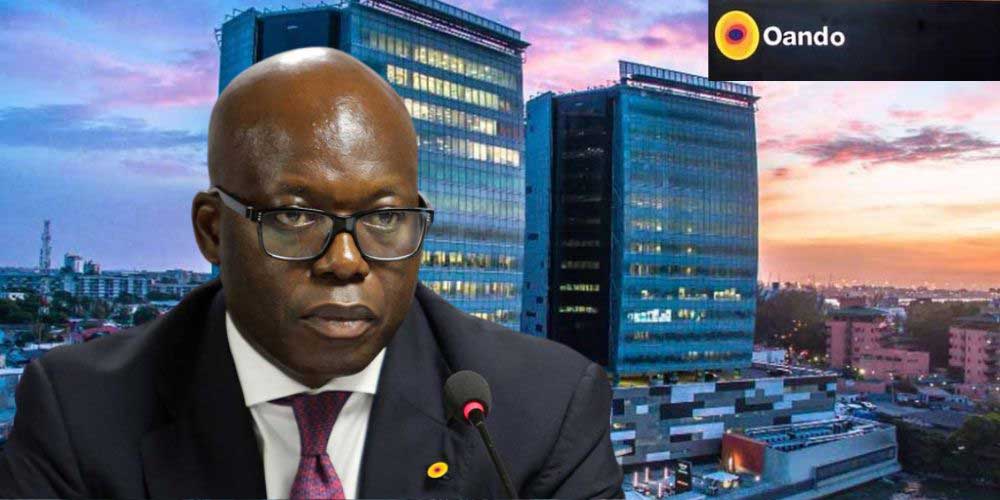Experts Back IMF, Say Inflation, Oil Slump Responsible For GDP Downgrade

Financial experts have described the IMF’s downgrade of Nigeria’s 2025 growth forecast to 3 per cent as expected, citing high inflation, weakened consumer purchasing power, and falling crude oil prices.
In an exclusive chat with THE WHISTLER, they noted that Nigeria’s economic performance is increasingly vulnerable to both domestic structural challenges and global factors like U.S.-led trade tensions and protectionist policies, which are dampening global trade and investment flows.
The analysts emphasized the urgent need for Nigeria to pursue deep structural reforms, diversify its economy, and enhance non-oil revenue generation to build resilience and achieve sustainable growth.
The Managing Director of Arthur Stevens Asset Management, Mr. Olatunde Amolegbe, has described the International Monetary Fund’s (IMF) downgrade of Nigeria’s economic growth forecast for 2025 as unsurprising, attributing the revision to a combination of domestic and global economic pressures.
Reacting to the IMF’s latest World Economic Outlook, which cut Nigeria’s projected GDP growth rate to 3.0 per cent for 2025, Amolegbe said the downgrade was largely expected given the country’s current economic realities.
“On a general basis, I believe this is to be expected,” Amolegbe noted. “We are seeing the effects of stubbornly high inflation, which continues to erode real incomes and weaken consumer purchasing power.
When prices are rising sharply and wages remain relatively flat, economic activity is bound to slow down.”
He pointed to the recent sharp decline in global crude oil prices as another major factor that could weigh heavily on Nigeria’s growth performance.
As an oil-dependent economy, Nigeria’s foreign exchange earnings and fiscal revenues are heavily influenced by developments in the global oil market.
“The sudden and significant drop in crude oil prices is a serious concern,” he explained. “It directly impacts Nigeria’s foreign exchange inflows, which in turn affects our ability to fund imports, stabilize the naira, and meet fiscal obligations.”
On the international front, Amolegbe cited the escalating trade tensions triggered by new tariff policies introduced by the United States, particularly under former President Donald Trump, as a broader risk to global growth.
“The likely impact of U.S. tariffs has led most global forecasters, including the IMF, to lower GDP projections for 2025,” he said. “These tariffs are expected to negatively affect global trade flows, and Nigeria, being part of the global economy, cannot be insulated from such disruptions.”
Amolegbe emphasized that Nigeria’s economic outlook will remain tied to both domestic policy responses and how effectively the global economy adapts to evolving geopolitical and trade dynamics.
“We need to watch not just local inflation and oil prices, but also how global demand patterns evolve. Nigeria must improve its economic diversification efforts and strengthen non-oil revenue generation to reduce vulnerability to external shocks,” he concluded.
Also reacting to the International Monetary Fund’s (IMF) revised projection, Group Managing Director, Crane Securities Limited, Mr. Mike Eze said the downgrade highlights the mounting economic challenges both globally and domestically.
He said, “This revision, though concerning, is not entirely unexpected,”. “Nigeria’s growth trajectory is increasingly exposed to global macroeconomic headwinds and persistent local vulnerabilities.”
He pointed out that the broader decline in global economic activity, triggered by recent protectionist trade measures, including new U.S. tariffs and retaliatory actions by trading partners, is likely to weaken export demand, capital inflows, and investor confidence—all of which are critical for emerging markets like Nigeria.
“Global trade disruptions have a ripple effect. For Nigeria, this may mean reduced demand for key export commodities like crude oil, and potential volatility in global financial markets, which could affect portfolio investments and exchange rate stability,” he explained.
On the domestic front, Eze emphasized that structural challenges, such as high inflation, weak productivity, insecurity in food-producing regions, and foreign exchange shortages, continue to constrain Nigeria’s growth potential.
“Inflation remains elevated, eroding real incomes and weakening household consumption, which is a major driver of GDP. Meanwhile, limited fiscal space and ongoing subsidy pressures are narrowing the government’s ability to support growth through public investment,” he added.
While the IMF’s forecast remains modestly positive, Eze warned that without deep structural reforms, the country risks settling into a low-growth trap.
“The government must accelerate reforms in the energy sector, ease trade and business regulations, improve infrastructure, and unlock private capital.
“Only then can Nigeria reverse this trend and move closer to the 5-6 per cent growth needed to meaningfully reduce poverty and unemployment,” he said.
Experts Back IMF, Say Inflation, Oil Slump Responsible For GDP Downgrade is first published on The Whistler Newspaper



